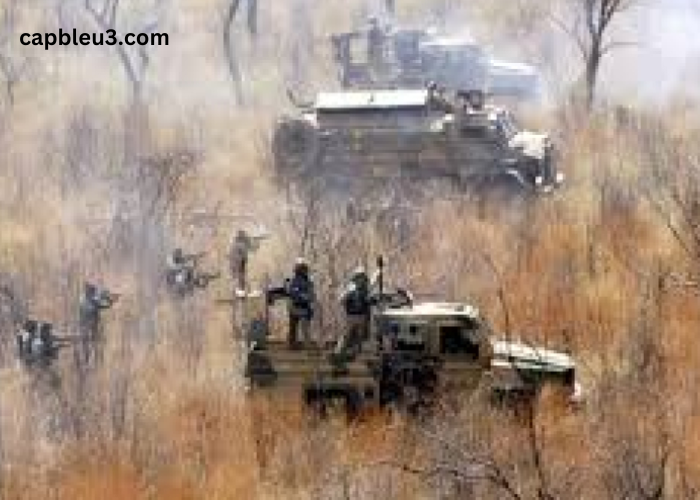
Terrorism has increasingly become a prominent issue in Burkina Faso, transforming the security landscape and affecting the daily lives of its citizens. Situated in West Africa, Burkina Faso has been grappling with violent extremism and insurgency in recent years, which has profound implications for its stability and development. This article provides a comprehensive analysis of the terrorism crisis in Burkina Faso, exploring its origins, the impact on society, and the ongoing efforts to counteract this severe challenge.
Origins and Evolution of Terrorism in Burkina Faso
The roots of terrorism in Burkina Faso are intertwined with regional dynamics and local factors. While the country was relatively stable for many years, it has become increasingly affected by the spillover of extremist violence from neighboring nations. The rise of terrorism in Burkina Faso can be traced to several factors:
Regional Instability
Burkina Faso’s geographical location makes it vulnerable to the regional instability that affects many West African countries. The spread of extremist groups from Mali and Niger has significantly impacted Burkina Faso. These groups, including affiliates of al-Qaeda and the Islamic State, have exploited regional conflicts and political instability to expand their influence.
Local Grievances and Socio-Economic Factors
Local grievances and socio-economic issues have also played a role in the rise of terrorism. Economic disparities, unemployment, and poor governance contribute to the discontent that extremist groups exploit. By promising solutions to these problems, terrorist organizations can recruit individuals who are disillusioned with the state.
Ethnic and Communal Tensions
Ethnic and communal tensions within Burkina Faso have been exacerbated by extremist groups. These groups often target specific ethnic or religious communities to incite violence and create divisions. Such actions undermine national cohesion and exacerbate existing tensions.
Impact of Terrorism on Burkina Faso
The impact of terrorism on Burkina Faso is profound, affecting various aspects of life in the country:
Humanitarian Crisis
Terrorism has led to a significant humanitarian crisis in Burkina Faso. The violence has caused widespread displacement, with thousands of people fleeing their homes to escape attacks. Internally displaced persons (IDPs) face dire conditions, including inadequate shelter, lack of access to healthcare, and limited educational opportunities.
Economic Disruption
The ongoing conflict and insecurity have disrupted economic activities in affected regions. Agriculture, which is a major livelihood for many Burkinabe, has been particularly impacted. The destruction of infrastructure, loss of livestock, and disrupted trade routes have exacerbated economic hardships for many communities.
Social and Psychological Impact
The psychological impact of terrorism on individuals and communities cannot be underestimated. The constant threat of violence, loss of loved ones, and displacement create immense stress and trauma. Social cohesion is undermined as communities are torn apart by violence and fear.
Challenges to Governance and Security
The rise of terrorism has posed significant challenges to Burkina Faso’s governance and security. The government faces difficulties in maintaining control over vast and often inaccessible areas where extremist groups operate. Security forces are stretched thin, and corruption within the security apparatus can further complicate efforts to combat terrorism effectively.
Efforts to Combat Terrorism
In response to the growing threat of terrorism, Burkina Faso has undertaken various measures to address the crisis:
Military and Security Operations
The Burkinabe government has launched military and security operations to combat extremist groups. These operations involve both national forces and international partners. However, the effectiveness of these operations is often limited by logistical challenges, insufficient resources, and the need for coordinated strategies.
International Cooperation
Burkina Faso has sought assistance from international partners to address the terrorism crisis. Collaboration with neighboring countries, such as Mali and Niger, is crucial in countering cross-border terrorism. Additionally, support from international organizations and allies provides resources and expertise to enhance Burkina Faso’s counter-terrorism capabilities.
Community Engagement and Prevention
Addressing the root causes of terrorism involves engaging with local communities and addressing socio-economic grievances. Initiatives aimed at improving education, creating economic opportunities, and promoting social cohesion are essential in preventing radicalization and reducing the appeal of extremist groups.
Humanitarian Assistance
Efforts to provide humanitarian assistance to displaced populations and affected communities are critical. International organizations and NGOs play a vital role in delivering aid, including food, shelter, and medical care. Addressing the immediate needs of affected individuals helps mitigate the impact of terrorism and supports recovery efforts.
The Road Ahead
The fight against terrorism in Burkina Faso is complex and multifaceted. Success in combating terrorism requires a comprehensive approach that addresses both the symptoms and the root causes of the crisis. Continued efforts to strengthen security, promote socio-economic development, and foster international cooperation are essential for long-term stability.
Building Resilience
Building resilience within communities is crucial for overcoming the challenges posed by terrorism. Strengthening local institutions, promoting community engagement, and supporting economic development initiatives can help communities better withstand the impacts of violence and reduce the appeal of extremist ideologies.
Enhancing Regional Cooperation
Given the transnational nature of terrorism in West Africa, regional cooperation is vital. Collaborative efforts among West African nations, supported by international partners, can enhance intelligence sharing, coordinate security responses, and address cross-border threats more effectively.
Fostering Dialogue and Reconciliation
Promoting dialogue and reconciliation among different communities and ethnic groups can help rebuild trust and social cohesion. Initiatives aimed at addressing grievances, promoting inclusivity, and fostering mutual understanding contribute to long-term peace and stability.
Conclusion
The terrorism crisis in Burkina Faso presents a significant challenge with far-reaching consequences for its society, economy, and governance. Understanding the origins and impact of terrorism provides insight into the complexities of the situation and the multifaceted efforts required to address it. By combining military, diplomatic, and socio-economic strategies, Burkina Faso can work towards overcoming the current crisis and building a more stable and resilient future.
As the situation evolves, continued international support, regional cooperation, and comprehensive national strategies will be critical in combating terrorism and ensuring a safer, more secure environment for all Burkinabe.